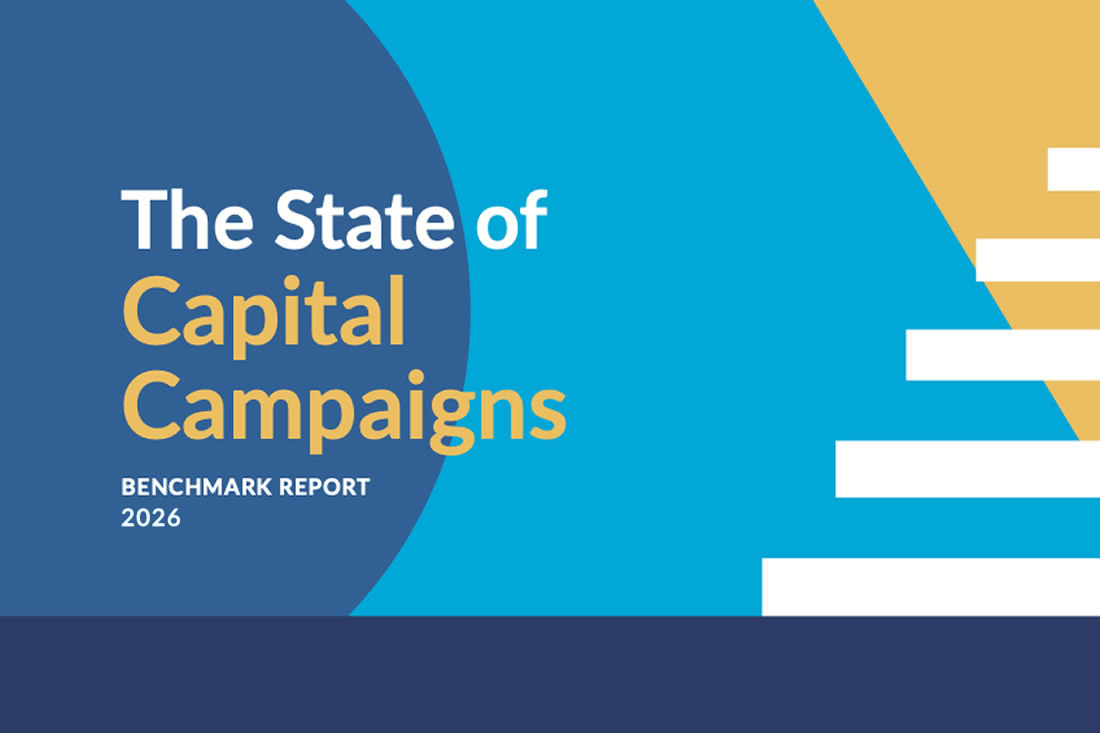Two Must-Have Skills for a Successful Capital Campaign

A capital campaign is a long roller coaster ride. It’s likely to take two or three years. You can be the most prepared organization around and still, you, your staff and your board will be pushed beyond what’s comfortable.
Inevitably, some volunteers won’t return your emails promptly, top donors will skip out on commitments, construction estimates will come in higher than you imagined, a staff member will need medical leave just as the campaign goes into high gear — the possibilities are endless!
All this leads to anxious nights packed with worry…
What happens when everyone is stressed? When tensions are high, people tend to behave badly. If you want your campaign to succeed, no matter how stressful things are, you must make it a priority to maintain a positive atmosphere.
Here are two powerful human skills you can use to do just that.
2 Human Skills to Make Your Capital Campaign Flow Better
These skills are not specific to capital campaigns — you can use them in many situations. Perhaps you already do. Used regularly, they’ll help you building cohesive teams, energize individuals and create the spirit needed to sustain everyone even when things go wrong.
Skill #1: Thank people right away, and do it often.
We in fundraising usually thank donors for their gifts. But we don’t do nearly enough to thank people for all of the small things they do every day.
Part of the problem is that we think we must thank people in grand and formal ways. But in reality, often the most effective thank you’s are the small, personal ones.
Thank you’s can be quick, but they must be specific.
You can send simple, one or two sentence emails. Or you can thank people in person when you see them. The key is to thank people for something specific they’ve done that you noticed.
With email, it takes almost no time to write a line or two of thanks. If you make a practice of thanking people every day, you’ll start to notice more things you want to thank people for.
Thank people for simple things, like:
- For connecting you to someone who’s making a real difference.
- For picking up the coffee for the morning campaign meeting.
- For making a really thoughtful comment in a meeting that moved the agenda along.
- For simply being steady and committed in your shared goals.
Forego the big gestures and official communication in favor of more frequent, small, personal expressions of gratitude.
Developing a practice of gratitude not only makes the people you thank feel good, it’ll give you a little drop of happiness too. And the more you do it, the easier it will become to write those short, authentic emails from your heart.
Find out how each individual likes to be thanked. When you can, thank people in ways that reflect their preferences, not yours. While everyone appreciates a pat on the back and an acknowledgment, sometimes you can find the perfect gift.
Recognizing people for their work is an art — it’s not stuffy or bureaucratic.
Skill #2: Master the Oreo Cookie approach to feedback.
When you’re pressed for time or under a lot of pressure— it’s easy to give critical feedback without giving it much thought. But that’s not the best approach.
Think of feedback as an Oreo Cookie — frame the critical feedback between two honest, positive statements.
Imagine that you have worked hard on drafting the case for support for your campaign and after reading your draft, your ED sends you and email like this:
Analisa, this is too wordy and seems to circumvent the real reason we are writing it— to solicit support. Can you cut this down and make it more focused?
If you got that email, you’d probably feel discouraged and unappreciated.
Here’s an example of how the same information could be shared in a more constructive way using the Oreo Cookie approach.
Imagine yourself getting this feedback instead:
Cookie layer 1:
Thanks for pulling this draft of the case for support together. I know you’ve worked hard on it and I love the way it’s organized.
Filling layer:
For the next draft, here are a couple of things I caught when I was reading it. In the introduction to the project, I think we can make more of an impact with active rather than passive language. Maybe give that a try and see if we can tighten things up. Then, before you talk about the financial need, expand the section explaining why this project has to happen now. Try to add one more two more paragraphs.
Cookie layer 2:
I’m so excited to see the case taking shape. I know how challenging it is to write the first draft! Thanks for all of your hard work on it.
What a difference an encouraging few words can make!
The two cookie layers make the corrections easy to swallow. In fact, with this approach, the corrections don’t read as criticisms, they read as simple, collaborative suggestions.
Sure, it takes more effort to use the Oreo cookie approach. But if you sandwich your feedback in between layers of kindness, you’ll find that your work and your relationships will all benefit. Staff members and volunteers will want to work with you. And that simple shift will make your campaign much easier.
Being Keenly Aware of Others is a Key Pillar of Fundraising
If you’re like most people, you’re swept up in the day to day pressures of your own life — which are often intensified during a capital campaign. The more pressure, the more myopic you become and the less aware you are of the people around you.
But staying keenly aware of other people may very well be one of the most powerful fundraising skills you can master. In fact, it may be one of the most effective skills of building friendships and even being happy. When you take time to notice what’s going on with other people, you’re able to make contact with them in small but powerful ways.
So while these two skills may not be what you think of as the usual tools needed for a successful capital campaign, your ability to make people feel appreciated and special will make a bigger difference than you might have imagined.
Please share the ways you make people feel special in the comments below.



Pretty good concepts
Nice! Thank you for this today.
I’m so glad you liked this post. Thx for letting me know.